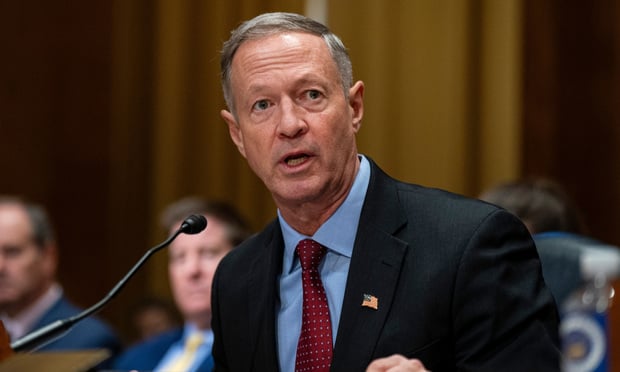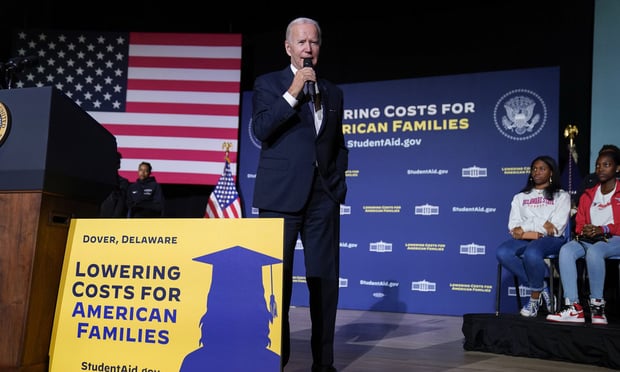 Comment letters on the DOLMEP proposal reveal a sharp dissension between industrystakeholders and the country's largest consumer advocacy forretiree interests. (Photo: Shutterstock)
Comment letters on the DOLMEP proposal reveal a sharp dissension between industrystakeholders and the country's largest consumer advocacy forretiree interests. (Photo: Shutterstock)
The comment letters on a Department of Labor multiple employer plan (MEP) rule intended toincrease access to workplace retirement plans reveal a sharpdissension between industry stakeholders and the country's largestconsumer advocacy for retiree interests.
|The DOL is currently considering the letters as it finalizes the rule, drafted under the directionof an Executive Order issued by President Trump. “It shall be the policy of theFederal Government to expand access to workplace retirement plansfor American workers,” the Executive Order states.
|To that end, Labor establishes conditions by which employers canjoin multiple employer plans, which allow groups of employers toachieve economies of scale by pooling workers under one definedcontribution retirement plan.
|Under the DOL's rule proposal, participation in a MEP is limitedto employers associated by industry, or located within the samemunicipality or state.
|And sponsorship of MEPs would be limited to ProfessionalEmployer Organizations or local Chambers of Commerce.
|An insufficient approach
In what was a shock to many in the retirement services industry,Labor's proposal prohibited plan providers from sponsoringMEPs.
|That prohibition relies on an exceedingly narrow interpretationof how the Employee Retirement Income Security Act defines anemployer sponsor of a retirement plan, according to comment letterswritten by retirement plan providers, their advocates, and employertrade groups.
|“Although the Department's regulatory efforts are commendable,the Coalition has serious concerns that the scope of the proposedregulation is too narrow, and its conditions are too restrictive,to meaningfully accomplish the Department's or the Administration'sgoals,” wrote attorneys for the Groom Law Group, writing on behalfof a coalition of investment managers, retirement planrecordkeepers, third-party administrators, and trustees.
|The U.S. Chamber of Commerce, American Benefits Council, theSPARK Institute, and Insured Retirement Institute are among theemployer and retirement industry trade groups that also take issuewith Labor's proposed prohibition on service provider sponsorshipof MEPs.
|“We believe the Department's proposal is too limiting indefining permissible MEP sponsorship and, as a result, is unlikelyto result in significantly greater retirement savings opportunitiesfor working Americans, particularly those working for smalleremployers,” wrote Prudential in its comment letter.
|Phil Waldeck, president, Prudential Retirement, and a co-authorof Prudential's comment letter, told BenefitsPRO that restrictingservice providers from sponsoring MEPs would result in a MEPprovider market that will be too small to meaningfully close theaccess gap to workplace retirement plans. Labor estimates that 38million workers lack access to retirement plans through theiremployers.
|“The scale of this problem is huge,” said Waldeck, who commendedthe “creativity” regulators and legislators are applying to addressthe access gap. “PEOs play an important role in the marketplacetoday. But would we have enough market participants? And why wouldwe not want service providers as part of the solution for coverage?I don't think this (Labor's proposal) would be sufficient to solvethe problem.”
|AARP says service providers would bring conflicts to MEPsponsorship
Labor's proposal cited the “statutory ambiguity” in how ERISAdefines employers in determining which entities can serve asfiduciary sponsors to MEPs, and which cannot.
|The proposal did not say it was prohibiting retirement planservice providers—insurers, broker-dealers, recordkeepers,trustees, and third-party administrators—because of their conflictsof interest.
|But that is the reason AARP gives for its support of theprohibition on service provider sponsorship of MEPs.
|“AARP strongly supports the Department's requirement that theMEP act in a fiduciary capacity and financial service firms beprohibited from sponsoring a MEP,” wrote AARP in its commentletter.
|“MEPs cannot be successful if the plan provider isself-interested. While the financial services industry is expert atselling financial services, they almost always face conflicts ofinterest in prudently determining which retirement investments andcharges are appropriate. Most financial service firms do not act ina fiduciary capacity for key retirement plan functions,” AARP'sletter adds.
|Prudential's Waldeck candidly acknowledged that a financialinstitution sponsor of a MEP could be conflicted.
|“Those who are concerned about conflicts of interest raise fairquestions,” said Waldeck.
|But he was equally candid when speaking to ERISA's existingprohibitions on fiduciary self-dealing.
|“We want to have a robust marketplace with real choice andaction that moves us away from the status quo,” said Waldeck. “Andwe want to have robust protections in terms of regulation.Conflicts have to be properly managed. Labor and the IRS have theability to structure the right approach. We would want theDepartment to evaluate the concerns of all constituents—includingservice providers and others—to manage conflicts.”
|A number of comment letters to Labor suggest the agency couldwork with industry to craft a new prohibited transaction exemptionto allow service providers to sponsor MEPs. Such an exemption couldbe written and implemented within a year, Waldeck said.
|He also cautioned that MEPs, with or without service providersas sponsors, will not completely close the coverage cap on theirown, a sentiment others in industry have expressed as Congress andLabor have moved to increase their availability. But they dorepresent a bipartisan opportunity to make progress, which Waldecksays would be greater with a robust MEP market that includesservice providers as sponsors.
|AARP backs RESA, which doesn't prohibit service providersponsors
In a notable endorsement, AARP backed the Retirement EnhancementSecurity Act when it was reintroduced in the House last year.
|RESA's language on Open MEPs “absolutely contemplates” serviceproviders sponsoring MEPs, said Michael Kreps, a principal at theGroom Law Group.
|“There is no question that everyone that worked on thatlegislation assumed service providers would sponsor MEPs becausethe legislation doesn't say they can't,” said Kreps, whoco-authored Groom's comment letter to Labor.
|“But RESA was also 100 percent clear: sponsors of MEPs have tobe fiduciaries,” added Kreps, who served as the senior pensions andemployment counsel for the Senate HELP Committee from the 110th tothe 114th Congress. “No one on the Hill talked about excludingservice providers.”
|Language in RESA does not explicitly name the financialinstitutions that could qualify as fiduciary sponsors of MEPs.BenefitsPRO asked AARP if it understood RESA as allowing serviceprovider sponsors of MEPs, and if so, how the advocacy explains itssupport for RESA and Labor's proposed prohibition on serviceprovider sponsors.
|“AARP accepts that financial service firms may be willing to actas fiduciaries even though it may be difficult for them to evaluateinvestments, fees and conflicts without any bias,” said DavidCertner, legislative counsel and director of legislative policy forgovernment affairs at AARP, in an email.
|“That is why, in addition to requiring the MEP provider to actas a fiduciary, AARP in our comments also urged public transparencyof all MEPs, providers, investments and fees,” added Certner, whoauthored AARP's comment letter to Labor.
|Certner also said AARP supports Open MEPs, “provided the entityoperating the MEP is required to act as a full fiduciary, meaningprudently selects and monitors all investments, negotiatesreasonable fees and minimizes conflicts of interest.”
|The case for “Vandelity”
In its comment letter, the Lubbock Chamber of Commerce, whichrepresents nearly 1,900 businesses with 79,000 employees in westTexas, urged Labor to finalize its proposed rule “as quickly aspossible.”
|The Lubbock Chamber could be a MEP sponsor under the proposedrule—it was one of the first Chambers to sponsor an associationhealth care plan after Labor finalized that rule last year.
|If it sponsors a MEP, the Lubbock Chamber would be the fiduciaryresponsible for overseeing plan administration, including selectionof service providers and investments.
|That would seem to introduce new responsibilities for theLubbock Chamber, which has 13 employees, none of whom have reportedexperience administering 401(k) plans or designing plan menus.
|Ostensibly, those responsibilities would be outsourced. In oneimaginable scenario, a third-party fiduciary advisor could be hiredto select a recordkeeper to administer the MEP, and to selectprudent investments.
|That arrangement raises potential questions of efficiencyrelative to a service provider sponsoring a MEP. And it alsopotentially raises questions regarding MEP participants' ultimateprotections.
|Take a hypothetical service provider—call it “Vandelity.” Thefirm manages trillions through its proprietary mutual funds and hasan established 401(k) recordkeeping arm. Under Labor's proposal,Vandelity can't sponsor a MEP. But it and other similarly capablefirms would be needed to administer a plan sponsored by the LubbockChamber.
|Under that arrangement, Vandelity would not have to act as afiduciary if it were chosen as the recordkeeper. Were Vandelityallowed to sponsor a MEP, it would bear full fiduciaryresponsibility.
|ERISA would prohibit Vandelity from self-dealing if it were aMEP sponsor. The hypothetical firm would undoubtedly draw the ireof regulators and the plaintiffs' bar were it to frontload aninvestment menu with its own mutual funds.
|A core argument service providers are making to Labor is thatthey have the capability to most efficiently sponsor a MEP, andthat ERISA's prohibited transaction protections offset theconflicts service providers bring to the table. In effect, serviceproviders are most capable of fulfilling fiduciary duties toprospective MEPs, they argue, and to best leverage the model toclose the retirement plan access gap.
|As Groom Law's Kreps put it: “The fiduciary standard is only asgood as the people that stand behind it.”
|READ MORE:
|Commonality for MEPs proposed for businesses insame state, municipality
||Complete your profile to continue reading and get FREE access to BenefitsPRO, part of your ALM digital membership.
Your access to unlimited BenefitsPRO content isn’t changing.
Once you are an ALM digital member, you’ll receive:
- Critical BenefitsPRO information including cutting edge post-reform success strategies, access to educational webcasts and videos, resources from industry leaders, and informative Newsletters.
- Exclusive discounts on ALM, BenefitsPRO magazine and BenefitsPRO.com events
- Access to other award-winning ALM websites including ThinkAdvisor.com and Law.com
Already have an account? Sign In
© 2024 ALM Global, LLC, All Rights Reserved. Request academic re-use from www.copyright.com. All other uses, submit a request to [email protected]. For more information visit Asset & Logo Licensing.








